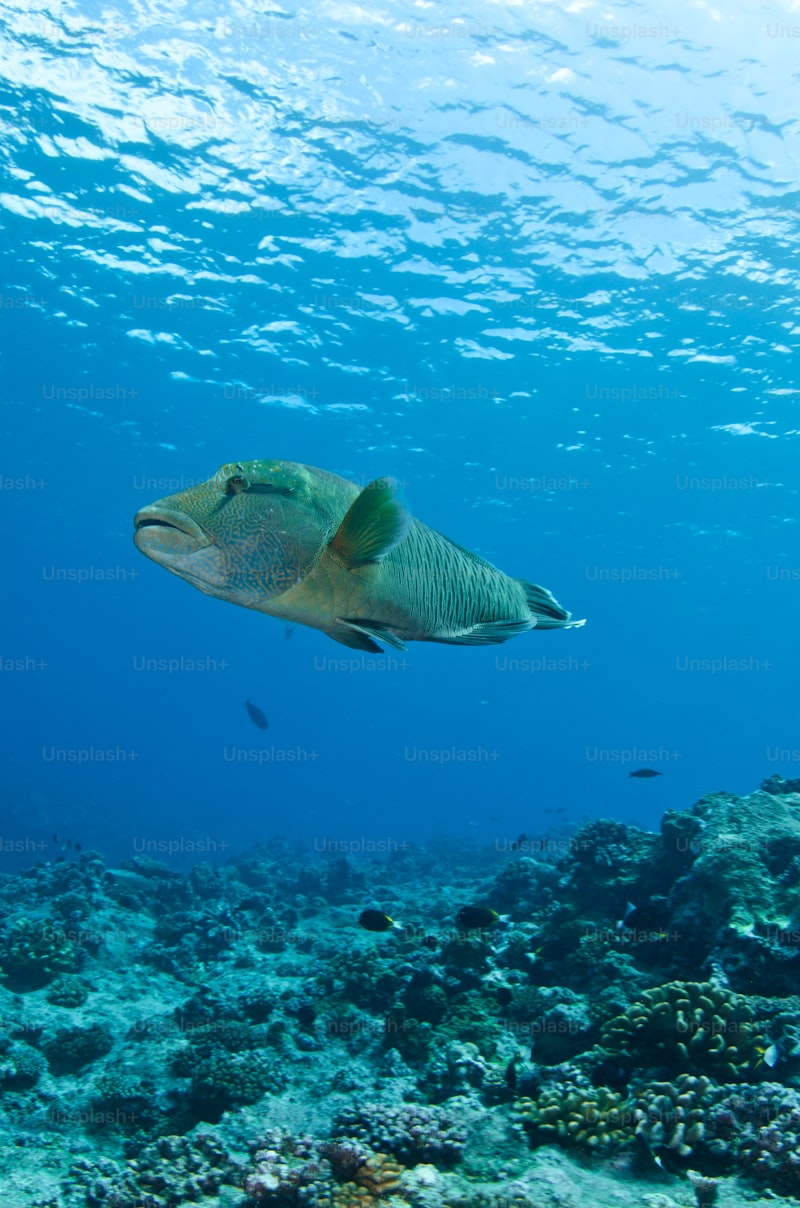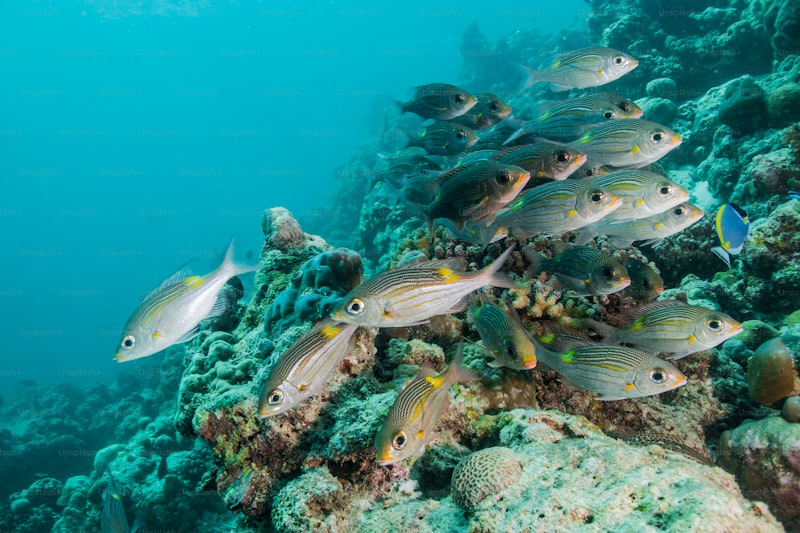
Imagine the oceans as the heart of our planet, pumping life through its currents and waves. Just like our heart keeps our body functioning, marine ecosystems maintain a delicate balance that supports biodiversity and global processes. From coral reefs to mangrove forests, each component of these ecosystems contributes uniquely to the overall health of the oceans.
One of the key reasons why marine ecosystem preservation is crucial is its impact on climate regulation. Oceans act as a massive carbon sink, absorbing a significant portion of the carbon dioxide emitted into the atmosphere. This absorption helps mitigate the effects of climate change by reducing greenhouse gas levels in the air.
Moreover, marine biodiversity is essential for the stability and resilience of ecosystems. Each species, no matter how small, plays a role in the intricate web of life underwater. For example, coral reefs not only support countless marine species but also protect coastlines from erosion and storm damage. Preserving these habitats ensures that they can continue to provide these vital services.
Another critical aspect is the economic importance of marine ecosystems. Fisheries and tourism industries rely heavily on healthy oceans. Sustainable fishing practices and marine tourism activities are directly linked to the preservation of marine biodiversity and habitats. Healthy fisheries support livelihoods and food security for coastal communities around the world.
The importance of marine ecosystem preservation cannot be overstated. It is not just about protecting underwater environments but safeguarding the future of our planet. By understanding and valuing these ecosystems, we can work towards sustainable practices that benefit both nature and humanity.
Beyond the Waves: Why Marine Ecosystem Preservation is Vital

Have you ever stood by the ocean, feeling the vastness of its waters and the rhythm of its waves? The marine ecosystem that lies beneath those waves is not just a picturesque backdrop but a critical component of our planet’s health. Let’s dive into why preserving this ecosystem is not just an option but a necessity.
Imagine for a moment that you are snorkeling along a vibrant coral reef. The kaleidoscope of colors dazzles your eyes as you spot a variety of fish darting through the coral. This bustling community is not just beautiful; it supports millions of species and provides livelihoods for countless people around the world.
Marine ecosystems, like coral reefs, mangrove forests, and seagrass beds, are biodiversity hotspots. They harbor a staggering array of species, from the smallest plankton to the largest whales. Each organism plays a crucial role in maintaining the delicate balance of the ecosystem.
But beyond their biodiversity, marine ecosystems provide invaluable services to humanity. They regulate our climate by absorbing carbon dioxide and releasing oxygen. Coral reefs, often called the “rainforests of the sea,” protect coastlines from storms and erosion, supporting tourism and fisheries that sustain local economies.
However, these ecosystems are under threat from human activities. Pollution, overfishing, climate change, and habitat destruction are taking a heavy toll. Coral bleaching, caused by rising sea temperatures, is decimating reefs worldwide. Plastic waste chokes marine life, and destructive fishing practices deplete fish stocks faster than they can replenish.
The good news is that we can make a difference. Conservation efforts, such as marine protected areas and sustainable fishing practices, are showing promise. By reducing our carbon footprint and advocating for policies that protect marine habitats, we can help ensure a future where marine ecosystems thrive.
Saving Our Seas: The Urgency of Marine Ecosystem Preservation
The world’s oceans, teeming with life and wonder, are facing an unprecedented crisis. Marine ecosystems, crucial to the health of our planet, are under severe threat from human activities. The urgency of preserving these delicate ecosystems cannot be overstated. Imagine a world without the vibrant colors of coral reefs, the graceful movements of dolphins, or the majesty of whales breaching the surface. Our oceans are not just a source of beauty; they are vital to our survival.
One of the most pressing issues facing marine ecosystems today is pollution. Plastics, chemicals, and other pollutants find their way into the ocean, wreaking havoc on marine life. Sea turtles mistake plastic bags for jellyfish, seabirds become entangled in fishing lines, and fish ingest microplastics, ultimately entering our food chain. The impact of pollution on marine biodiversity is profound, threatening countless species with extinction.
Climate change exacerbates these challenges. Rising sea temperatures and ocean acidification pose significant threats to coral reefs, which are home to a quarter of all marine species. Coral bleaching events, caused by stress from warming waters, have devastated reefs around the world. Without urgent action to reduce greenhouse gas emissions and mitigate climate change, these vital ecosystems may never recover.
Overfishing is another critical issue facing marine ecosystems. Unsustainable fishing practices, such as bottom trawling and bycatch, deplete fish stocks and disrupt entire ocean ecosystems. Species like bluefin tuna and sharks are on the brink of collapse due to overfishing, threatening not only marine biodiversity but also the livelihoods of millions who depend on fishing for their survival.
Preserving marine ecosystems requires collective action on a global scale. Conservation efforts, such as marine protected areas and sustainable fishing practices, play a crucial role in safeguarding our oceans. Educating communities about the importance of marine conservation and empowering them to take action is equally vital. By reducing plastic consumption, supporting sustainable seafood choices, and advocating for policies that protect marine habitats, we can all contribute to the preservation of our seas.
Underwater Guardians: Strategies for Marine Ecosystem Preservation
One of the foremost strategies involves establishing marine protected areas (MPAs). These zones act as sanctuaries where marine life can thrive without the pressures of overfishing, pollution, or habitat destruction. By designating specific areas off-limits to certain activities, MPAs help to restore biodiversity and protect vulnerable species.
Another pivotal approach is promoting sustainable fishing practices. Overfishing disrupts the delicate balance of marine ecosystems, leading to the depletion of fish stocks and ecological imbalances. By implementing quotas, regulating fishing gear, and enforcing seasonal closures, fisheries can operate in a way that supports long-term sustainability and healthy fish populations.
Pollution control is also critical in marine ecosystem preservation. From plastic debris to chemical runoff, pollutants pose serious threats to marine life. Efforts to reduce single-use plastics, improve waste management systems, and enforce stricter environmental regulations play crucial roles in mitigating marine pollution and preserving water quality.
Furthermore, raising awareness and education among communities and stakeholders is essential. When people understand the value of marine ecosystems and the impacts of their actions, they are more likely to support conservation efforts and make environmentally conscious choices in their daily lives.
In essence, preserving marine ecosystems requires a multifaceted approach that integrates conservation strategies, sustainable practices, pollution control, and public engagement. By acting as stewards of the oceans, we can safeguard these underwater treasures for future generations to marvel at and enjoy.
Balancing Act: How Marine Ecosystem Preservation Supports Global Biodiversity
Marine biodiversity is essential for sustaining life on Earth. It provides us with food, oxygen, and even medicines derived from marine organisms. However, these ecosystems face unprecedented threats from human activities like overfishing, pollution, and climate change. The delicate balance that sustains marine life is now under immense pressure.

By preserving marine ecosystems, we safeguard not only the creatures that inhabit them but also ourselves. Healthy oceans regulate climate, absorb carbon dioxide, and protect coastal communities from storms. They are our planet’s life support system, playing a critical role in maintaining ecological balance.
Think of marine preservation as an investment in our future. Just as a skilled tightrope walker maintains balance on a high wire, we must carefully tread to ensure the delicate equilibrium of marine biodiversity remains intact. It’s about finding that sweet spot where human needs and environmental conservation converge.
Imagine a world where future generations can marvel at thriving coral reefs, swim alongside dolphins, and witness the awe-inspiring migrations of sea turtles. This vision drives conservation efforts worldwide, urging us to act now to protect our oceans before it’s too late.
In this ongoing narrative of sustainability, every action counts. Whether it’s supporting marine protected areas, reducing plastic waste, or advocating for sustainable fishing practices, each step forward contributes to the greater goal of preserving our oceans’ biodiversity. Together, we can achieve a harmonious balance where marine ecosystems thrive, benefiting both nature and humanity alike.
Frequently Asked Questions
Why are marine ecosystems important?
Understand why marine ecosystems are crucial with our concise FAQ. Learn how they support biodiversity, regulate climate, and provide resources essential for life. Discover their pivotal role in sustaining global fisheries, tourism, and climate stability.
What threats do marine ecosystems face?
Discover the diverse threats facing marine ecosystems today, from climate change and pollution to overfishing and habitat destruction. Understand the urgent need for conservation efforts to protect these vital ecosystems.
How can individuals contribute to marine ecosystem conservation?
Learn how individuals can help conserve marine ecosystems through responsible fishing practices, reducing plastic waste, supporting marine protected areas, and promoting sustainable seafood choices.
What are some key marine species impacted by ecosystem degradation?
Learn about key marine species affected by ecosystem degradation, including coral reefs, sea turtles, and marine mammals. Understand the critical importance of preserving their habitats for biodiversity and ecological balance.
How does marine ecosystem preservation benefit humans?
Learn how preserving marine ecosystems benefits humans through providing food security, supporting livelihoods, regulating climate, and promoting biodiversity conservation.



